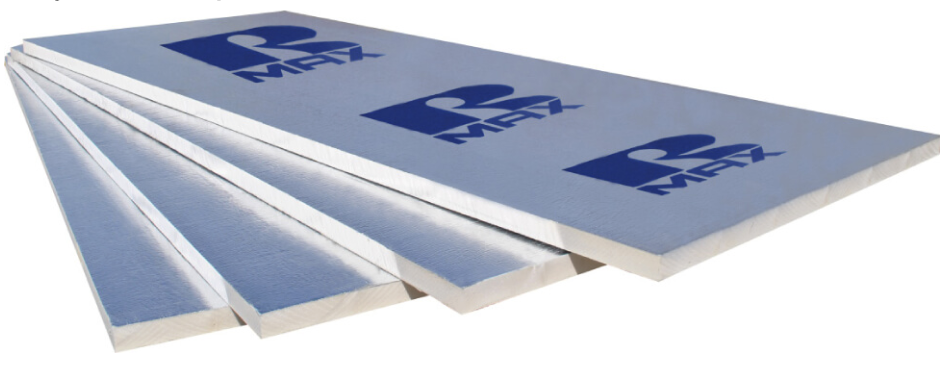Expanded Polystyrene (EPS) insulated wall panels are a new insulation material that has become widely accepted due to its cost-effectiveness and ease of installation.
While EPS may initially seem like an appealing option, there are several significant drawbacks that you should consider.
In this article, we aim to discuss EPS insulated wall panels as a whole, including their advantages and disadvantages, and explain why Polyiso insulation is a superior solution.
Let’s dive in!
Understanding EPS Insulated Wall Panels
EPS is used extensively in both residential and commercial construction projects, but i's favored for its lightweight properties and insulation effectiveness. EPS panels are also made from a rigid cellular plastic that contains tiny air particles. Manufacturing EPS panels involves expanding and inflating polystyrene pellets with steam.
Once cooled, the panels are lightweight and can be easily cut and shaped. Initially, the benefits such as thermal efficiency and affordability may seem advantageous, but deeper issues lie beneath the surface.
Problems Associated with EPS Insulated Wall Panels
EPS, at first glance, seems like an attractive insulation solution. Fairly low cost, EPS provides a decent level of thermal insulation (R-Value) but can hide performance issues that can creep up over time.
Moisture Sensitivity
One of the critical downsides of EPS is its sensitivity to moisture.
When exposed to water, the panels can absorb moisture, which compromises their structural integrity and insulation capacity. As EPS panels absorb moisture, they become less effective at stopping the flow of heat.
Moisture absorption can also lead to mold growth that can pose health risks and require costly repairs. Since EPS is used inside wall panels, determining moisture degradation or mold growth can be quite difficult.
Fire Risk
EPS panels are inherently flammable. In the event of a fire, they can contribute to the spread of flames and emit toxic gases.
The carbon monoxide and styrene gases that are emitted when EPS burns are not just hazardous to health, they can lead to fatalities in enclosed spaces. This significant risk factor makes EPS a less desirable choice in environments where fire safety is critical.
Chemical Sensitivity
EPS is also susceptible to damage from certain chemicals, which can degrade the material. This reaction not only weakens the insulation’s effectiveness, it also reduces the longevity of the construction material and makes regular inspections more important.
Environmental Impact
Environmental concerns are important in today's construction practices. EPS panels pose challenges in recycling and disposal by contributing to long-term pollution. EPS panels are not biodegradable and are often left in landfills, where they can take hundreds of years to decompose.
Pest Attraction
EPS can be attractive to various pests, including termites and rodents. These pests can burrow into the material, which compromises the structural integrity and necessitates additional costs for pest control measures.
Polyiso: A Superior Alternative to EPS
Given the problems associated with EPS, Polyiso insulation has emerged as a compelling alternative. Here’s why:
Superior R-Value
Polyiso insulation boasts a higher R-value per inch compared to EPS for improved thermal resistance.
This means better energy savings and enhanced comfort within buildings. Because Polyiso has a higher R-value per inch, a thinner sheet of Polyiso is needed to provide the same amount of insulation as a thicker sheet of EPS.
Moisture Resistance
Unlike EPS, Polyiso is highly resistant to moisture absorption. This property ensures that it maintains its structural integrity and insulation properties over time, even in damp conditions. Polyiso’s resistance to moisture also makes it less likely to experience mold and mildew growth.
Fire Performance
Polyiso is recognized for its fire-resistant properties. It significantly reduces the risk of fire spread and does not emit harmful toxins, which makes it a safer choice for residential and commercial structures.
Polyiso does not melt like EPS when exposed to flames (potentially spreading fire) but instead chars and hardens to slow the fire’s progression.
Environmental Benefits
Polyiso is a greener choice for builders and developers concerned with environmental impact. It is easier to recycle than EPS and has a lesser impact on the environment throughout its lifecycle.
Why Choose Polyiso Over EPS?
Choosing Polyiso over EPS insulated wall panels is not just a matter of enhancing building performance, it's also about prioritizing safety, sustainability, and efficiency.
With its superior insulation properties, resistance to fire, moisture, and pests, and a lower environmental footprint, Polyiso provides clear advantages that can lead to long-term savings and improved building integrity.
Find the Best Polyiso Insulation Solutions with Rmax
While EPS insulated wall panels have been a common choice in the past, their numerous problems, from moisture issues to fire risks, make them less desirable in today’s construction landscape. Polyiso insulation is a robust, efficient, and safer alternative.
By opting for Polyiso in your next project, you ensure superior performance, enhanced safety, and a commitment to sustainability. Consider this advanced insulation solution for your future building needs to achieve optimal results.
To learn more about Polyiso and the right solutions for your project, reach out to the Polyiso experts at Rmax today!



